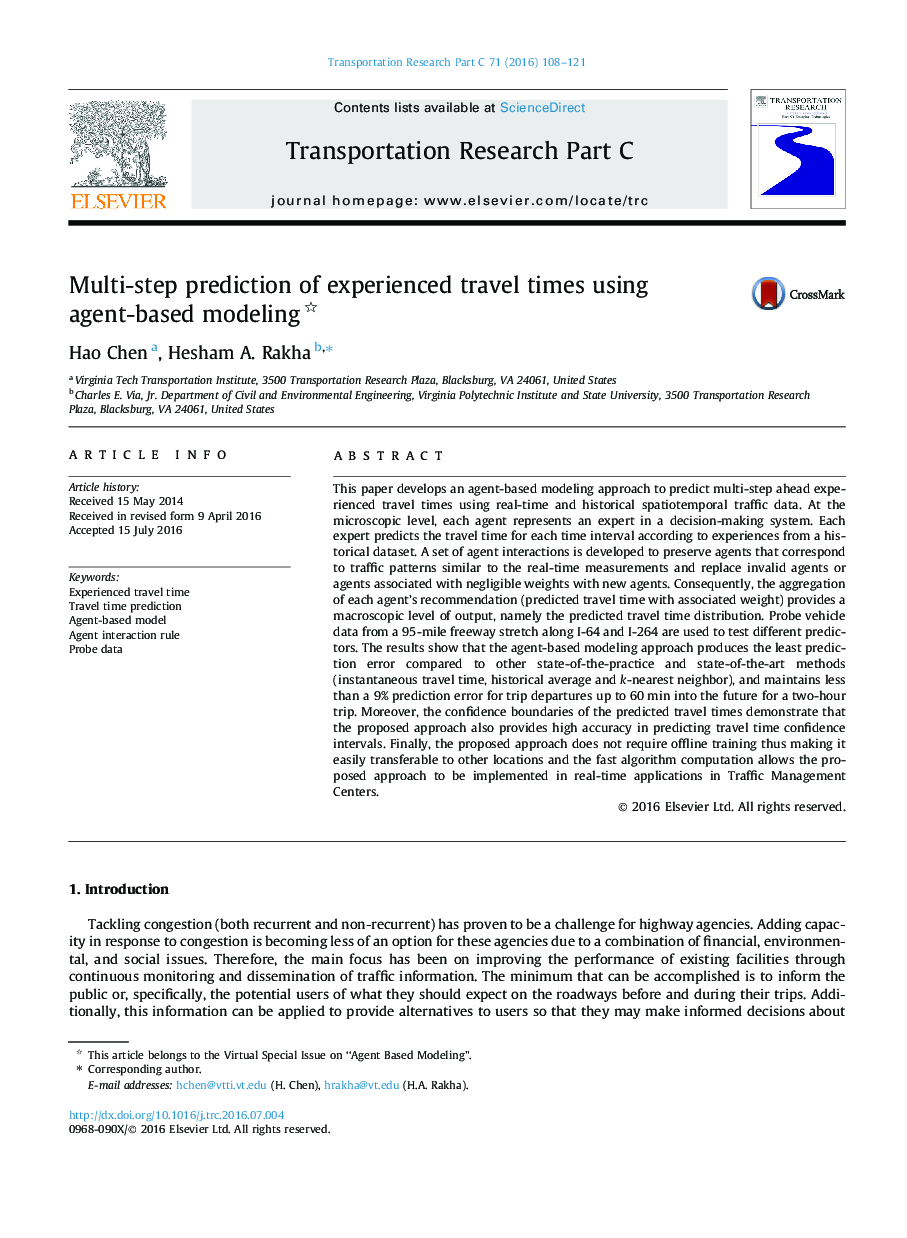| Article ID | Journal | Published Year | Pages | File Type |
|---|---|---|---|---|
| 526226 | Transportation Research Part C: Emerging Technologies | 2016 | 14 Pages |
•Developed an agent-based approach to estimate experienced travel times.•Algorithm can estimate travel times for departures up to an hour in the future.•Algorithm produces less than 9% prediction errors.
This paper develops an agent-based modeling approach to predict multi-step ahead experienced travel times using real-time and historical spatiotemporal traffic data. At the microscopic level, each agent represents an expert in a decision-making system. Each expert predicts the travel time for each time interval according to experiences from a historical dataset. A set of agent interactions is developed to preserve agents that correspond to traffic patterns similar to the real-time measurements and replace invalid agents or agents associated with negligible weights with new agents. Consequently, the aggregation of each agent’s recommendation (predicted travel time with associated weight) provides a macroscopic level of output, namely the predicted travel time distribution. Probe vehicle data from a 95-mile freeway stretch along I-64 and I-264 are used to test different predictors. The results show that the agent-based modeling approach produces the least prediction error compared to other state-of-the-practice and state-of-the-art methods (instantaneous travel time, historical average and k-nearest neighbor), and maintains less than a 9% prediction error for trip departures up to 60 min into the future for a two-hour trip. Moreover, the confidence boundaries of the predicted travel times demonstrate that the proposed approach also provides high accuracy in predicting travel time confidence intervals. Finally, the proposed approach does not require offline training thus making it easily transferable to other locations and the fast algorithm computation allows the proposed approach to be implemented in real-time applications in Traffic Management Centers.
